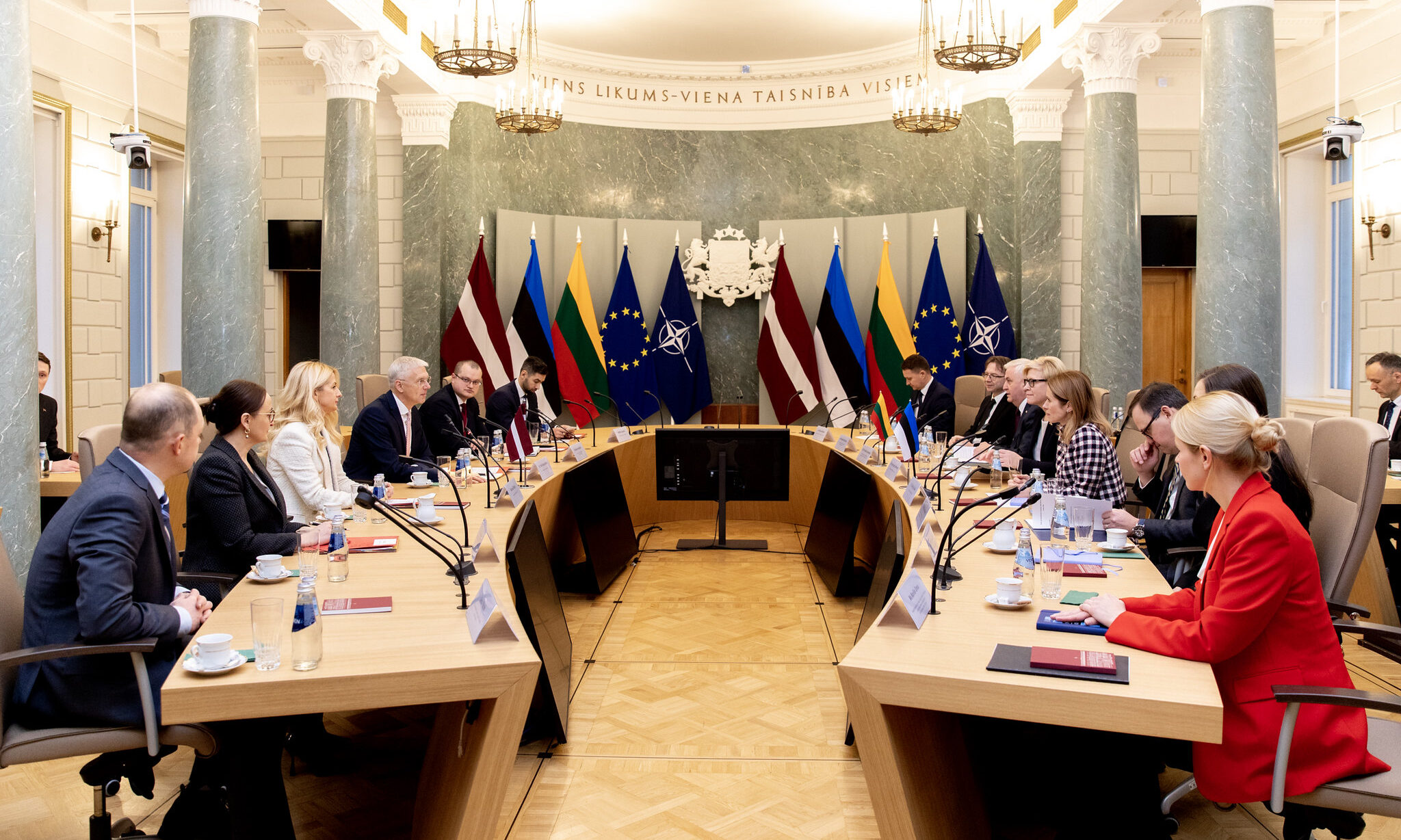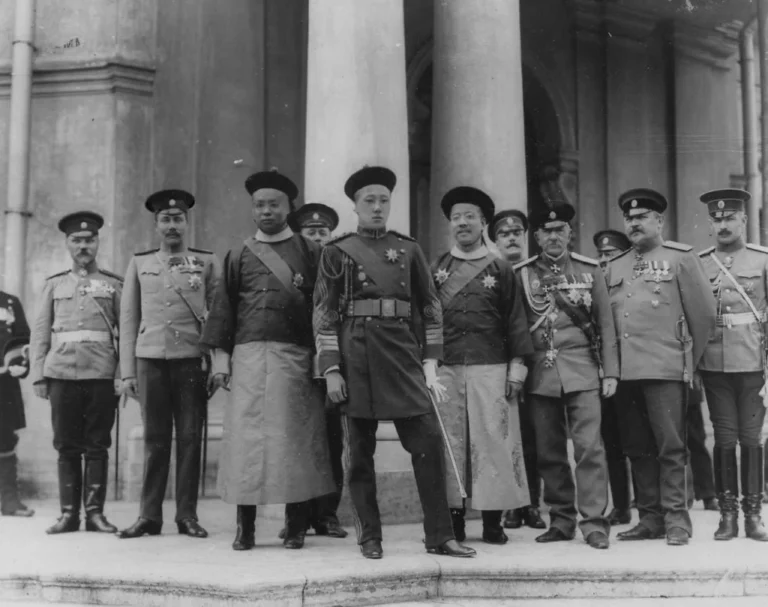Lithuania’s Parliamentary Elections: Foreign Policy Outlook on China and Taiwan

During the 2020-2024 tenure of Lithuania’s center-right coalition government, the country’s pivot from China to Taiwan became a prominent example of its values-based foreign policy. However, this shift sparked significant criticism within domestic political circles. While most opposition parties supported the pivot, they criticized its execution and opposed the breakdown of diplomatic ties with Beijing. Among these, the Lithuanian Social Democratic Party (LSDP) emerged victorious in Lithuania’s recent parliamentary elections, placing the party in a central position to form the new government that could potentially change the country’s China policy. It is thus worthwhile to assess how the LSDP might approach its foreign policy toward both China and Taiwan with a more pragmatic outlook.
This article is part of a series of articles authored by young, aspiring China scholars under the Future CHOICE initiative and part of a series from CHOICE focusing on the impact of elections on countries’ China policy.
For the first time in 12 years, Lithuania’s center-left opposition, the LSDP, won the first round of the parliamentary elections held on October 13, signaling a potential shift away from the conservative approach of the Homeland Union–Lithuanian Christian Democrats (TS-LKD). While the results will not be confirmed until after the second round on October 27, the LSDP’s platform – along with statements from its leader, Vilija Blinkevičiūtė – provide valuable insights into the party’s foreign policy direction, particularly regarding China and Taiwan.
Restoring Ties with China
The LSDP has pledged to normalize diplomatic relations with China, which could involve restoring ambassadorial-level representation in both capitals. The current Minister of Foreign Affairs, Gabrielius Landsbergis, had previously implied an intent to normalize these relations, noting that Lithuania was no longer experiencing economic pressure from China. However, more substantive efforts to improve bilateral ties had stalled. With the LSDP likely to form the next government – backed by its coalition partner, the Union of Democrats “For Lithuania” (DSVL) – the prospect of restoring ties with China seems more likely.
At the same time, normalization is expected to be cautious, focusing on diplomatic engagement rather than extensive economic cooperation. Admittedly, Lithuania’s bilateral trade with China rose significantly after the relaxation of Chinese sanctions on Lithuanian products, with imports to China having doubled compared to the same quarter last year. Moreover, almost half of Lithuanians agree that the country’s economy will struggle without Chinese investments. Nevertheless, there is a broad consensus across political parties that China actively supports Russia, which Lithuania views as an existential threat. Given the China-Russia nexus and Lithuania’s overarching foreign policy priority of ensuring Ukraine’s victory, it is unlikely the new government will pursue anything beyond normalization of diplomatic relations, safeguarding Lithuania’s national interests in the process.
The US Factor in Lithuania-China Relations
Lithuania’s rapprochement with China will also depend on the outcome of the upcoming US presidential elections. This is because the country’s strategic pivot away from China and commitment to Taiwan have been largely driven by national security concerns, with the US acting as the Baltic state’s principal security guarantor. Lithuanian policymakers will thus pay special attention to the policies of the new US administration. Similarly, as the US-China rivalry shapes Beijing’s own relations with other countries, the policies adopted by the new US administration are also likely to influence China’s willingness to engage with Lithuania.
If Donald Trump wins, he is likely to impose high tariffs on Chinese goods and advocate for disengagement from the EU. As a result, Vilnius may adopt more radical rhetoric in the international arena, amplifying its tacit calls for decoupling from China. This could impede efforts to normalize diplomatic relations with Beijing while diverging from the EU’s more cautious approach of de-risking. On the other hand, if Kamala Harris wins, she is expected to favor targeted de-risking on a sector-by-sector basis and cooperation with the EU. In this case, Lithuania might pursue a more measured approach toward China, aligning more closely with European de-risking policies while exploring normalization.
Regardless of the US election outcome, Lithuania will need to adapt to US policies. The new Lithuanian government will need to balance its strategic goals with those of the US, while preparing to engage with whichever candidate wins the US election. Afterall, Lithuania will be unable to selectively choose the administration with which it wishes to cooperate.
Navigating Lithuania-Taiwan Relations
Although the LSDP has expressed its intention to alter Lithuania’s relations with China, it is unlikely that the party – in collaboration with its potential coalition partner, the DSVL – will radically change Lithuania’s ties with Taiwan, including the name of Taiwan’s representative office in Vilnius. While both the LSDP and DSVL leaders criticized the office’s name, Blinkevičiūtė noted that renaming it would be unwise, given the potential for strengthening economic relations with the broader Indo-Pacific region, including Taiwan.
However, the scale of economic benefits from Taiwan remains a point of contention. When Taiwan opened its representative office in Vilnius in 2021, it launched a $200 million investment fund targeting Lithuania’s semiconductor, laser, and biotechnology industries. That same year, Taiwan also established a $1 billion credit program to support collaborations between Lithuanian and Taiwanese companies. So far, there have been several notable successes, such as a $15 million deal between Teltonika IoT Group and Taiwan’s Industrial Technology Research Institute (ITRI), and a $10 million investment from Taiwania Capital in Lithuanian fintech powerhouse TransferGo.
Despite these advancements, concerns have been raised over the pace and scale of expected economic agreements. Some Lithuanian officials, including Asta Skaisgirytė, the chief foreign policy adviser to President Gitanas Nausėda, have expressed disappointment with Taiwanese investment, noting that the large amount of investment Taiwan promised has not materialized as quickly or on the scale Lithuania anticipated. Lithuanian businesses have also voiced frustration. For instance, Kęstutis Černeckas, a member of the Vilnius Chamber of Commerce, Industry and Crafts, pointed out that exports to Taiwan rose only marginally in 2023 – by $1.6 million in the first quarter – compared to the same period in 2022.
Criticism on the Taiwanese side has also intensified. Kuomintang legislator Wang Hong-wei criticized ITRI for providing 8-inch wafers to Lithuanian companies for free, arguing that Taiwan’s financial and tech contributions lacked sufficient returns. Despite such negative views, however, there are also optimistic perspectives as well. Paulius Lukauskas, head of the Lithuanian Trade Representative Office in Taipei, highlighted the long-term potential for closer ties, particularly in technology and supply chain collaboration, while urging patience and a realistic approach to potential gains on the Lithuanian side. Lukauskas has also suggested that Lithuania’s ambition to become a high-tech hub within the EU may require a more diversified approach that would avoid over-reliance on Taiwan. Joseph Wu, Taiwan’s former foreign minister, further sought to lower Lithuania’s expectations – especially when it comes to semiconductors – asserting that it is unrealistic for a single European country to serve as the focal point of the entire semiconductor supply chain.
The Dual Challenge
While the LSDP promised to normalize Lithuania’s relations with China, the party has not yet outlined a clear strategy for doing so. This leaves room for ambiguity and inconsistency in its foreign policy toward China – a criticism Blinkevičiūtė previously directed at Landsbergis. Moreover, the party’s normalization efforts could be undermined by the new US administration and its policies toward China. The incoming Lithuanian government will thus need to proceed cautiously, ensuring that Lithuania’s national interests are not compromised.
At the same time, Taiwan will remain a significant part of Lithuania’s foreign policy, with radical shifts from the new government being unlikely. However, uncertainty looms over the prospects for deepening ties with Taiwan. As the new government navigates its relationships with both China and Taiwan, it must maintain a balance of clarity and patience, especially when it comes to communicating to the public that the latter’s investments can take decades to bear fruit. Without a well-defined strategy and realistic understanding of the challenges ahead, the new government risks facing diplomatic and economic difficulties in its future dealings with both East Asian countries.
Written by
Elzė Pinelytė
ElzePinelyteElzė Pinelytė is Associate Expert at the Geopolitics and Security Studies Center (GSSC), Lithuania, where she studies China's domestic politics and foreign policy, with a focus on Sino-EU relations and its recent developments.


